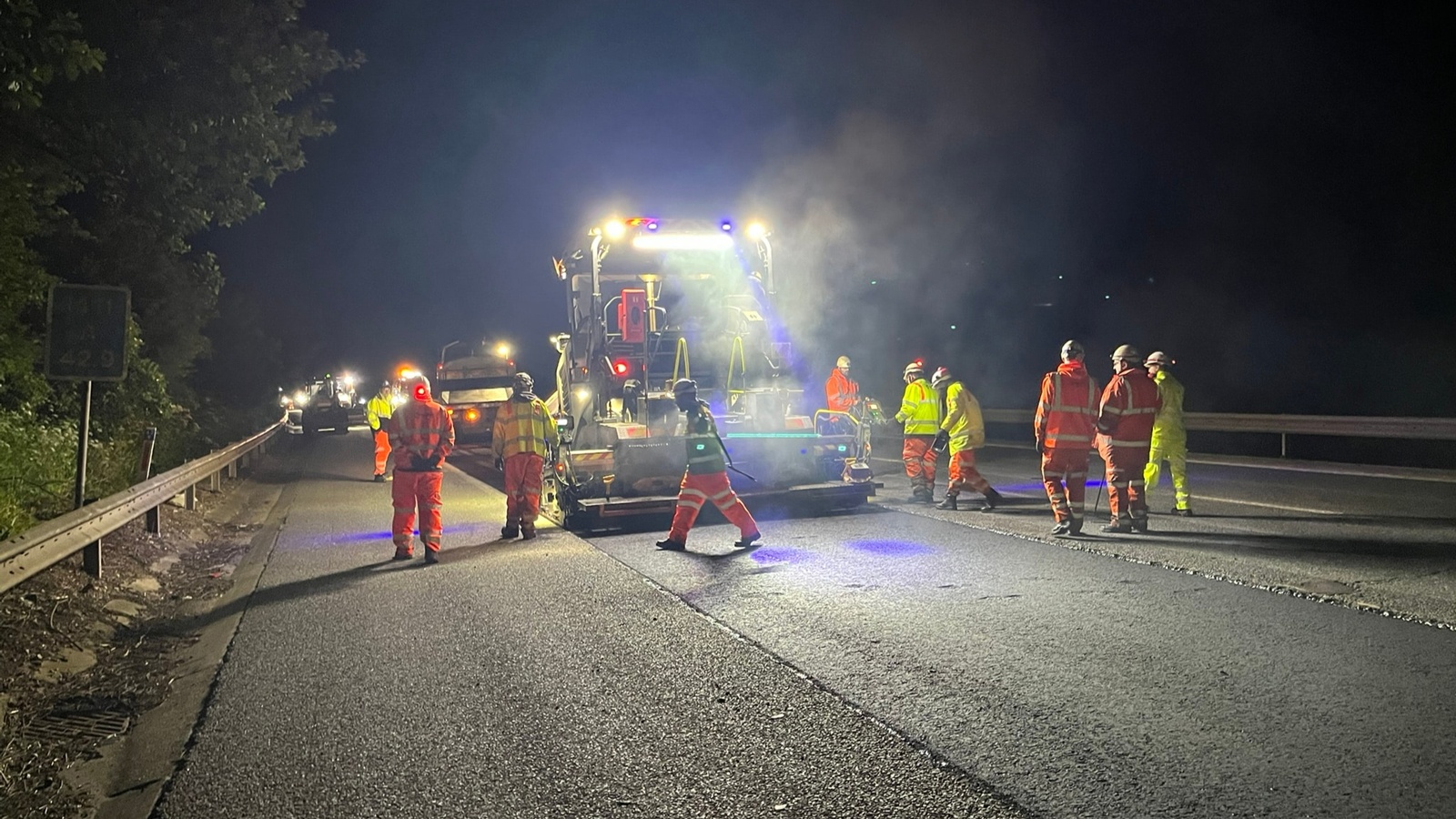
Tanya Weaver Thu 25 Jul 2024
Collected at: https://eandt.theiet.org/2024/07/25/national-highways-starts-trial-carbon-negative-aggregate-stretch-m11-motorway
National Highways is trialling a carbon-negative aggregate on a stretch of motorway in Essex in the hope of reducing the carbon footprint of our roads.
According to the Asphalt Industry Alliance, asphalt roads account for over 95% of all UK roads, with 25 million tonnes produced nationally each year. It is also one of the largest sources of carbon emissions.
In a bid to find solutions to help reduce its carbon footprint, National Highways, the government body overseeing England’s motorways and major roads, launched a low-carbon innovation competition last summer to find next-generation construction materials to help achieve its net zero targets.
Four firms emerged as winners and received up to £80,000 each to move their products forward. Seaham-based Low Carbon Materials was the first to enter the real-world trialling stage following eight months of extensive testing against highway specifications.
Low Carbon Materials’ carbon-negative aggregate, called ACLA, acts as a permanent carbon storage solution by capturing and storing carbon dioxide from the atmosphere in a process known as sequestration. It can be used as a replacement aggregate to lower the carbon footprint of asphalt.

National Highways
In this real-world trial, ACLA has been incorporated into essential resurfacing and maintenance work between junctions 7 and 8 of the northbound carriageway of the M11 in Essex.
A test strip of asphalt concrete binder course containing ACLA has been laid alongside a control test strip of 100% conventional aggregate. This has been done with the support of both Skanska and Tarmac, and will be routinely monitored by National Highways.
This is a heavily trafficked section of the motorway, so proves an ideal testing ground for the durability of the product.
Joanna White, National Highways research, development and innovation director, said: “Solutions like this could have a real impact on our road to net zero carbon, so we are delighted that we have been able to accelerate the development of the product and get it on one of our roads for testing.”
Low Carbon Materials CEO Natasha Boulding added: “A motorway trial represents a significant step towards lower-carbon roads and widespread adoption. ACLA offers a simple and scalable solution that can be readily adopted by National Highways in their pursuit of their net zero targets.”

Leave a Reply